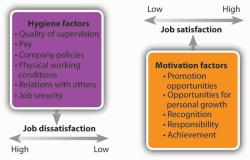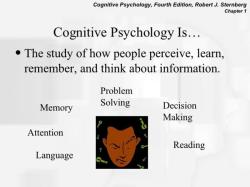What makes a sociopath angry?
Sociopathy, also referred to as Antisocial Personality Disorder (ASPD), is a complex mental health condition characterized by persistent patterns of disregard for the rights of others, impulsivity, manipulative behavior, and a lack of empathy or remorse. People with ASPD may exhibit anger, but their reactions and triggers can vary widely. It's important to note that not all individuals with ASPD will react in the same way or have the same anger triggers. Here are some factors that can provoke anger in some individuals with sociopathy:
Perceived Threats to Their Ego or Control: Sociopaths often have a strong need for control and power. Any situation or person that threatens their sense of dominance or superiority can trigger anger. This might include challenges to their authority, attempts to expose their lies or manipulations, or actions that question their self-image.
Frustration and Impulsivity: Sociopaths may struggle with impulsivity and difficulty managing frustration. When they encounter obstacles or experience setbacks, they may become easily frustrated and react with anger.
Defiance or Resistance: Individuals with ASPD may become angry when others refuse to comply with their demands or resist their attempts at manipulation. This resistance can be perceived as a challenge to their authority.
Loss of Resources or Opportunities: Anything that results in a perceived loss of resources, such as money, possessions, or opportunities, can trigger anger in some sociopaths. They may react aggressively to protect what they see as their own.
Exposure of Deception: Sociopaths often engage in deceitful behaviors, including lying and manipulation. If their deceptive actions are exposed or questioned, they may respond with anger to divert attention or defend themselves.
Perceived Slights or Insults: Sociopaths may have a fragile sense of self-esteem and be hypersensitive to perceived insults or criticisms. Even minor slights or perceived disrespect can trigger anger.
Rejection or Abandonment: Some individuals with ASPD may struggle with abandonment issues. The fear of being rejected or abandoned by someone they value can lead to anger and attempts to control or manipulate the person.
Legal Consequences: Facing legal consequences for their actions, such as arrests or imprisonment, can provoke anger in sociopaths. They may resent being held accountable for their behavior.
Lack of Admiration or Attention: Sociopaths often seek admiration, attention, and validation from others. When they do not receive the admiration they desire, they may react with anger or frustration.
It's important to recognize that individuals with ASPD may not always express their anger overtly, and some may be skilled at concealing their emotions. Their anger may manifest as manipulation, passive-aggressive behavior, or other forms of covert aggression. Additionally, while some people with ASPD may experience anger, others may display a complete lack of emotional response to situations that would typically provoke anger in most individuals.
Dealing with someone who has ASPD can be challenging, and it is often best approached with caution and professional guidance. If you are in a situation where you need to interact with someone you suspect has ASPD, consider seeking advice from mental health professionals or support from organizations that specialize in assisting individuals dealing with personality disorders.
Sociopaths are people with antisocial personality disorder (ASPD). They often have a disregard for the rights and feelings of others, and they may be manipulative, deceitful, and impulsive. Sociopaths may also experience frequent outbursts of anger, which can be unpredictable and dangerous.
There are a number of reasons why sociopaths may become angry. Some common triggers include:
- Frustration: Sociopaths may become angry when they are unable to get what they want or when things don't go their way.
- Rejection: Sociopaths may also become angry when they feel rejected or humiliated.
- Criticism: Sociopaths often have a hard time taking criticism, and they may lash out angrily when they feel criticized.
- Loss of control: Sociopaths may feel a need to be in control, and they may become angry when they feel like they are losing control of a situation.
It is important to note that not all sociopaths experience anger in the same way. Some sociopaths may be more prone to anger outbursts than others. Additionally, the way that sociopaths express their anger can vary greatly. Some sociopaths may become verbally abusive, while others may become physically violent.
Here are some of the factors that may contribute to sociopathic rage:
- Biological factors: Some researchers believe that there may be a biological component to sociopathic rage. For example, some studies have shown that sociopaths have lower levels of serotonin, a neurotransmitter that plays a role in regulating mood and aggression.
- Psychological factors: Sociopaths may also have certain psychological factors that make them more prone to anger outbursts. For example, sociopaths may have a low tolerance for frustration, or they may have difficulty managing their emotions.
- Social factors: Sociopaths may also be more likely to experience anger outbursts if they were raised in a chaotic or abusive environment.
It is important to be aware of the triggers and risk factors for sociopathic rage. If you are dealing with a sociopath, it is important to take steps to protect yourself from their outbursts. For example, you may want to avoid confrontations with the sociopath, or you may want to develop a plan for how to deal with an outburst if it does occur.
If you are concerned that you or someone you know may be a sociopath, it is important to seek professional help. A therapist can help to assess the situation and develop a treatment plan.













